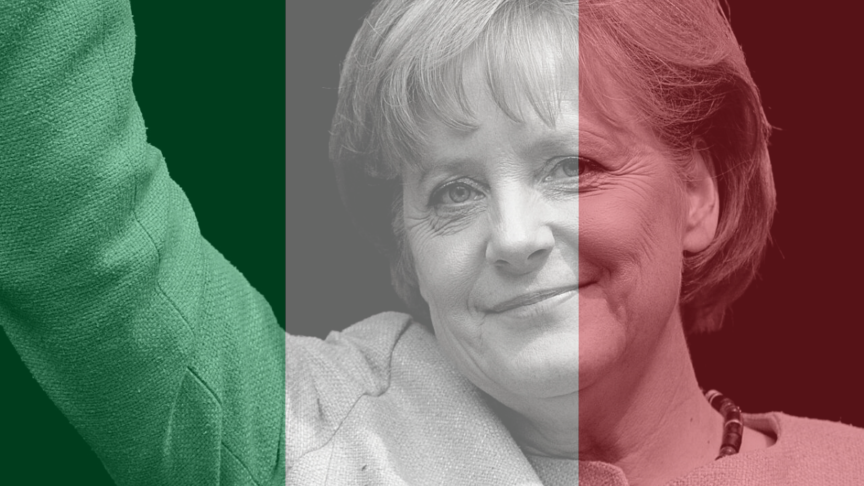What they want: Rome’s views on the new German government
Italian Prime Minister Mario Draghi has an opportunity to build a relationship with the next German chancellor that is free from party political rivalries. In doing so, he should focus on four main issues at the heart of the German-Italian relationship.
Since her election as German chancellor in 2005, Angela Merkel has worked alongside nine different Italian prime ministers. With some of them, the process was smooth – albeit often characterised by the north-south divide in important areas of EU policy. With others, especially those who strongly criticised the European Union, it was difficult to find common ground.
Italy’s current prime minister, Mario Draghi, is not affiliated with a political party – a feature that makes him unique among his predecessors who worked with Merkel (with the partial exception of Mario Monti). This could initially seem like a disadvantage, given that it leaves Draghi without the backing of an established political organisation. But it also means that he has an opportunity to build a relationship with the next German chancellor that is free from party political rivalries. In an unstable geopolitical environment – shaped by efforts to manage the pandemic and climate change amid growing competition between great powers – the relationship Draghi seeks to build with the next German government will be vital to Europe’s future.
For Rome, four main issues will be at the heart of the German-Italian relationship. The first is Berlin’s contribution to the transatlantic alliance and EU integration, which are the central pillars of Italian foreign policy. With French President Emmanuel Macron facing significant foreign policy and domestic political challenges, it will be especially important for Rome and Berlin to work together in support of the transatlantic alliance – with the backing of the French presidency of the EU Council in the first half of 2022 – and thereby determine the EU’s regional and global role.
The second issue is migration. As Arturo Varvelli and Lorena Stella Martini recently argued, migration is first and foremost a structural problem, but the EU persists in responding to it as an emergency. With member states gradually emerging from the covid-19 crisis, now is the time to push migration back to the top of the EU’s agenda. As recent events in Morocco and Afghanistan show, the issue has not gone away. Italy might be one of the entry points for migrants travelling to Europe, but Brussels is primarily responsible for the European system of migration cooperation with countries of origin and transit – a system that clearly does not work. And this is where Rome should join the next German government to push for a more coherent EU migration strategy.
With French President Emmanuel Macron facing significant foreign policy and domestic political challenges, it will be especially important for Rome and Berlin to work together in support of the transatlantic alliance
The third issue is the recovery and development of Europe’s economies. The north-south divide, which has long shaped the European debate, has been partially replaced by solidarity between member states. This is due to the pandemic’s impact on many southern EU economies. The make-up of the next government in Berlin will have a profound effect on Germany’s policy on such solidarity. But Draghi can draw on his experience of governing the European Central Bank during economic crises as he works alongside Berlin on the implementation of the NextGenerationEU recovery fund, ensuring that the EU’s economic priorities, targets, and rules remain aligned.
The fourth issue is populism and Euroscepticism. France’s April 2022 presidential election will have a major role in this but, in the meantime, Berlin and Rome should start working together to create a new esprit d’Europe. The next German government will be pro-European regardless of its composition; the current Italian one has deep European roots (even if it includes the League). Berlin, Paris, and Rome should build a political alliance designed to protect Europe’s fundamental values and interests from internal political challenges, including the threats to the rule of law from the Polish and Hungarian governments.
European capitals and EU citizens have great expectations of Berlin’s role in Europe. A recent poll conducted by the European Council on Foreign Relations shows that EU citizens see Germany as a trustworthy, pro-European power. As Jana Puglierin and Piotr Buras write, “in all five countries in which ECFR asked about European identity – France, Germany, Italy, Poland, and Sweden – those that said their European identity is at least as important to them as their nationality were much more likely than average to say that it is good that the president of the European Commission is German.” This suggests that, during her 16 years leading Germany, Merkel helped create a community of trust that included citizens from all corners of Europe.
It might be months before the new German government forms. And it will be seven months before the new French government is in place. With important elections looming in member states such as Hungary and Slovenia, the EU should not wait for the Franco-German partnership to shape the course of events.
As in an Olympic relay race, it will take more than two athletes to achieve victory. Italy, with its presidency of the G20 and government led by Draghi, can be the first to carry the baton on the key issues discussed above. Even before there is a new government in Berlin, Rome should take the lead in protecting Europe’s fundamental values, preserving its security and economic interests, and promoting its role in multilateral crisis management.
The European Council on Foreign Relations does not take collective positions. ECFR publications only represent the views of their individual authors.
